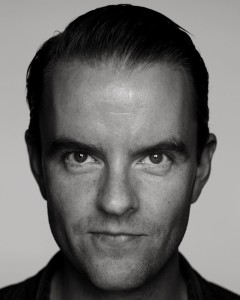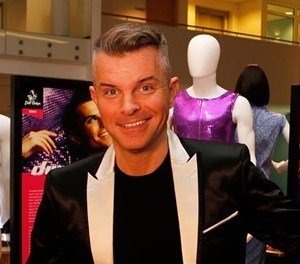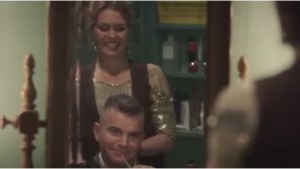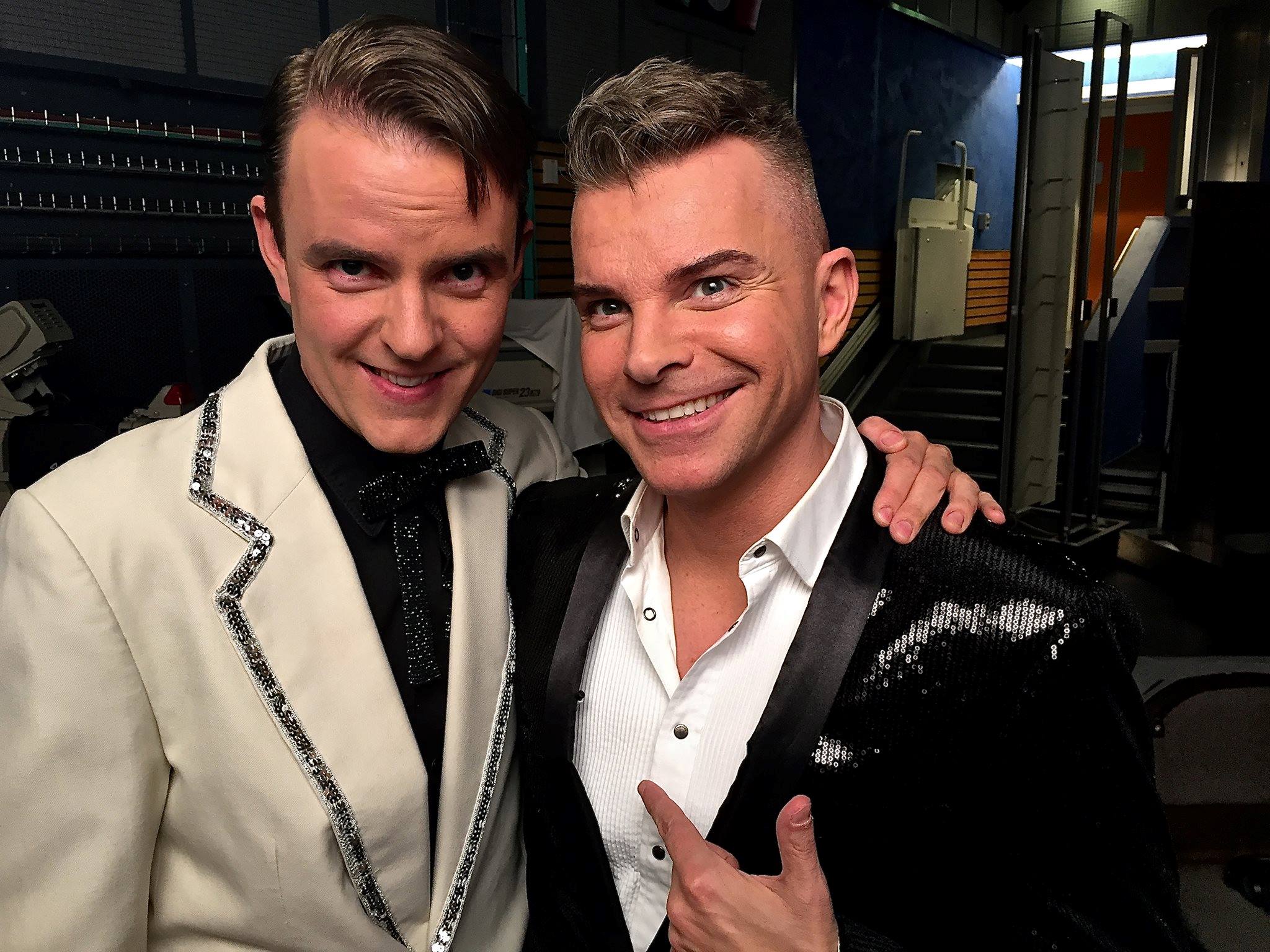Icelandic children’s TV show Stundin okkar (e. “Our hour”) made history last Sunday, when guest star and openly gay singer Páll Óskar addressed gay issues in a simple manner by saying: “you can’t decide how your heart beats. It just beats.” The writers felt it was about time somebody touched on the matter and are immensly proud with the response.
”You can imagine we’re happy! I am unbelievably happy with the response, proud and moved. What is happening now is the simple fact that we have just made television history,“ says Gói (Guðjón Davíð) Karlsson, one of the writers and host of the children’s TV show “Stundin okkar”, asked how he feels about the response the segment with Páll Ókar is getting, since it has already gotten over 50.000 views on YouTube and really positive feedback on Facebook.

”Since I started “Stundin” it has been a dream to do a show that is noticed, that makes a difference,“ he goes on. ”A show that everybody can learn something from but also have fun while watching. A show that gets the family to sit down in front of the TV or computer and watch it together. And if you look at the response we’re getting, it seems that people of all ages are responding to this. You can’t but be proud and happy about that. And the response this particular episode is getting, just shows we are doing it at the right moment. The audience was ready for it. Which is good.“
Is this the first time queer matters have been addressed on an Icelandic programme for children?
”I must admit that I haven’t done any research. But I have never seen gay issues being portrayed in children TV-shows. And it’s about time I say!“
How did the idea come about?
”There are three of us on the writer’s team. I, which could be titled as the editor, and then Sveppi (Sverrir Þór Sverrisson) and Bragi Þór Hinriksson, who is also our director. We sit down and try to get ideas about all kinds of themes. We wanted to have Páll Óskar in our opening show. So we started talking about that the character Sísi (played by actress Nína Dögg Filippusdóttir) would make a pass at him and his response to that. We all agreed that we never wanted to sound like we were preaching. We just wanted to create a dialogue. That’s really how this scene came about.
I wrote it again and again and when we finally started shooting the scene, it was amazing to see Páll Óskar and Nína play it. I, and all of us who were there, felt that we had some extremely good material.“
Was it difficult to get Páll Óskar on board?
”Not at all. He didn’t need any convincing. He was really excited about this. Everybody knows the man is a genius!“
”What is happening now is the simple fact that we have just made television history… And it’s about time I say!.“
Is this subject important to you? The rights of queer people?
”Yes. Human rights in general are very important to me. To supervise a TV-show is a big responsibility. Not to mention a children’s TV-show. We have to start a dialogue, talk to each other. Talk against prejudices. Because we are one big family living in this huge home that the Earth is. So let’s be open and look out for each other. We have to teach our children how awesome it is to be different.
It is also important to try to be non-judgmental in front of our children. For example not trash people on TV by saying “Ooooh man, that is such an awful actor” or “This politician is such a scumbag”, so our children can hear it. Of course we’re all entitled to our own opinions. But we don’t have the right to be cruel and judge people. We need to talk to each other with respect.“

Gói says that since he took over Stundin, he has always focused on depicting diversity. ”We’re always discussing diversity and trying to show our audience the whole flora. We have had a special show where we had a deaf actress and an interpreter. That was fun. My lovely little friend, Brynhildur Lára who is blind, will be on the show in a few weeks. It is amazing to see her “watch” a play. The theatre group Perlan (which consists of special-needs actors) will also visit us. All of this hopefully results in our audience getting to know all sorts of people and as a byproduct become more open-minded and learn to accept people as they are, not how they are “supposed to be”.“
He says that they’ve also had a special episode depicting the complete opposite. ”One of the first episodes I wrote was called “All the same” (i. Allir eins). There, we showed a world without where everybody was exactly the same. And how boring and awful that would be. Where everybody looked the same, had the same hobbies. In Iceland, all the kids were the same. There were only boys in Iceland, that dressed the same, and were all crazy good at soccer. Everybody wanted to be the goalie. Would that be a fun place to live in? And would it be practical if all the moms were dentists and all the dads were plumbers? I mean, what if I needed a carpenter? What if I broke my leg?
Ergo, we don’t want to be all the same. So stop teasing those who don’t wanna play soccer. Stop teasing those who dress differently. Let’s embrace and be happy about diversity. It’s so much more fun.“
The show has also dealt with more difficult issues. ”Last year, one of the character, Gloría, lost her grandfather. Which is another subject seldom discussed in children’s programming; death.“
”Nobody has given me any grief. My friends and family are proud of me. Besides, I’m surrounded by open-minded and non-prejudiced people.“
Gói says that he has high hopes that parents will watch the show with their children. As it’s not only conceived as a source of entertainment, but also a chance for parents to have educational discussions with their children. About death, about bullying, about queer matters, and everything between.
You have kids yourself. Did the episode with Páll Óskar raise any questions with them?

”They had already seen the show. And no, it didn’t raise any questions. Not like that. They listened and it just felt natural for them. That must be a good sign. I do think that grown-ups see the scene differently than children. “Wait, is that allowed?” is something some adults might ask. Simply because it is new in television. But we’re not born prejudiced. Then something happens, something in our surroundings. Fear or ignorance comes into play,“ he says and adds that he thinks, or he hopes, that most of the children who watched the episode felt the scene is the most natural thing in the world.
How has the response been from your closest circle, friends and family?
”Just the same as all the others. Everybody just over the moon happy about this. Nobody has given me any grief. My friends and family are proud of me. Besides, I’m surrounded by open-minded and non-prejudiced people.“
Has there been any negative feedback, any complaints?
”I’ve had an enormous amount of messages and emails and every one simply beautiful and encouraging. There are probably some out that weren’t happy with this. But as I said before, that’s okay. People are entitled to their opinions. But I won’t budge in my opinion that this is an important discussion and I’m proud of it.“
Were you nervous about airing the show?
”Not at all. We were extremely excited. We had shown it to a couple of people and everybody loved it. It is just really great that “Stundin okkar” is being discussed. That’s where “Stundin” belongs. In the discussion.“
Below the segement in question. English subtitle by Jón Helgi Kjartansson (turn on “closed captions” to see English subtitle).


